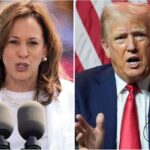By PAUL SCHEMM
Associated Press
TUNIS, Tunisia (AP) _ Tunisia’s slow transition from dictatorship to democracy reaches an end with a final debate on the new constitution, the first in the Arab world to avoid mentioning Islamic law and written by elected representatives.
Bordered by chaotic Libya on one side and autocratic Algeria on the other, the political consensus over the country’s national charter could provide a model for a turbulent region struggling with the conflicts between liberals and Islamists in the aftermath of the Arab Spring.
The opening of the debate at the Constitutional Assembly on Monday was marred by the deep polarization in Tunisia’s politics, as dozens of opposition deputies marched out of the chamber singing the national anthem in protest over the constitution’s latest draft.
Such theatrics, however, have been common during the nearly two-year lifespan of this body elected in October 2011 to write a new charter for a country of 10 million that spent the last half century under authoritarian rule.
The transition has been marked by the assassination of a politician, attacks on foreign embassies, street battles between hardline Islamists and their opponents as well as a deeply troubled economy that has been repeatedly downgraded by international lending agencies.
Yet with neighboring Libya filled with warring militias, millions in Egypt‘s streets seeking to depose a democratically elected president and Syria mired in brutal civil war, Tunisia’s halting progress is a standout for democratization in the region.
Alone among the countries democratizing under the Arab Spring, Tunisia took the route of electing the authors of its new constitution. In Egypt and Morocco, two other countries that received new national charters, the writing was done by a panel of appointed experts.
The difference, said Ghazi Ghareiri, a constitutional scholar at Tunis University, is that Tunisia will have a constitution in which everyone has an investment. So while it takes much longer, the result will have greater legitimacy.
“It’s not so much the content that is important but the degree of popular involvement in the constitutional question,” he said. “Other constitutions have been handed down from on high _ this is the first one that will be a real expression of the competing forces in society.”
Since the appearance of its first draft last year, the document has already been hotly debated by civil society and in the assembly’s committees. Demonstrations and popular pressure have already caused it to be revised three times.
The walkout by the opposition on Monday was in part due to what they said were the additions of new clauses by the ruling coalition, led by the moderate Islamist Ennahda Party. That suggests a rocky debate ahead during the holy month of Ramadan set to begin in a week.
For some, the transition period has gone on long enough and this democratic approach was disastrous for a country that needs to present the world with a permanent government and regain international confidence in its deeply scarred economy.
Ezzedine Saadeine, a financial consultant, warned that the country has been going into freefall while the assembly endlessly debates the clauses of the new constitution instead passing laws needed to rebuild the economy.
“The transition has been deeply mismanaged and huge chances missed for the country. The first big huge mistake was to accept to go the route of a constituent assembly,” he said. “If we look at the economic indicators, all of them _ with no exception_ have been deteriorating at a continuous pace, probably at an accelerating pace.”
While the revolution has brought freedoms from Ben Ali’s suffocating dictatorship, it has done no favors to the economy. Tourists are still staying away, strikes are hampering the important phosphate sector and investors are avoiding a country whose final political shape is not clear.
In June, the International Monetary Fund approved a much-needed $1.72 billion standby loan, followed by another from the Islamic Development Bank. But the country is still hemorrhaging cash. The Central Bank on Friday said reserves had dwindled to just 94 days of imports, just under the 100 days the bank considers adequate.
New elections are still a long way off. The organizing committee is only now being set up and it is expected to take at least six months to clean up voter registration lists and prepare for elections. That will delay the formation of a permanent government to early 2014 at best.
In the meantime, the opposition has accused the Islamists of trying to monopolize power and Islamize the country, while passing laws to exclude their political opponents.
There is even some question of how representative the assembly is, since several of the parties inside it have been plagued by defections and, in one case, even been dissolved. Another party, Nidaa Tunis (Tunisia’s Call) was formed after the elections so isn’t in the assembly but polls have shown it running neck and neck with the Islamists.
So far, however, the debate over the constitution has gone far beyond the ornate chambers of the parliament building and reached the colonial-era boulevards of downtown Tunis.
In August 2012, tens of thousands of women demonstrated over proposed language describing them as “complementary” to men, rather than equal as they had long been characterized in one of the region’s most progressive constitutions. The proposal was dropped.
Attempts to hedge adherence to personal rights and freedoms by insisting they had to be compatible with “Tunisian values” _ a veiled reference to Islam, many said _ was also abandoned.
Early proposals to vest all power in a prime minister selected by parliament with a figurehead president, as favored by the Islamists, were changed to give the president authority in foreign affairs and defense.
Ennahda also compromised on one of the key tenets of Islamist parties across the region, by agreeing to keep any mention of Shariah, Islamic law, out of the first article of the constitution _ a move that provoked angry demonstrations by hardline conservatives last year.
Secularists still worry about one of the final articles of the constitution that stipulates that no constitutional revision can undermine “Islam as the religion of the state.” They fear this could still be used as a backdoor to Islamization.
According to Kamel Labidi, a former journalist and campaigner for freedom of expression, civil society has emerged as a key check to the Islamist-led governing coalition, a role the scattered secular opposition parties haven’t been able to play.
“So far Tunisian civil society has managed to send a strong signal to the Islamist-led government,” he said. “They thought it would be easy to impose their vision.”
Labidi is currently waging a battle against the article which sets up an appointed commission that would have total control over print, broadcast and online media _ recreating the dreaded Ministry of Information in his view.
Experience has shown that constitutions in the Arab world have to be very specific in their provisions lest pliant legislatures pass laws eviscerating rights and freedoms at the behest of powerful presidents.
While much remains to be ironed out with the new constitution, some take solace in the fact that so much has been compromised on already, suggesting that the final sticking points will be overcome.
The document must pass with a two-thirds majority in the 217-seat body _ about two dozen more seats than ruling coalition has. If not, it goes to a referendum.
A referendum would delay a final government even further and could possibly turn into a poll over the role of Islam in Tunisia or _worse for Ennahda _ a critique of their faltering job at running the country, which may encourage a consensus to emerge in the assembly.
Gherairi, the constitutional scholar, is optimistic, pointing out that the country has come a long way from the police state it once was.
“The fact of seeing the power back down, the street winning space, and Tunisians getting results through their actions from the government was simply unheard of,” he said. “And this is what allows me to continue to believe that what is happening is a real revolution.”
___
Associated Press reporter Bouazza ben Bouazza contributed to this report










